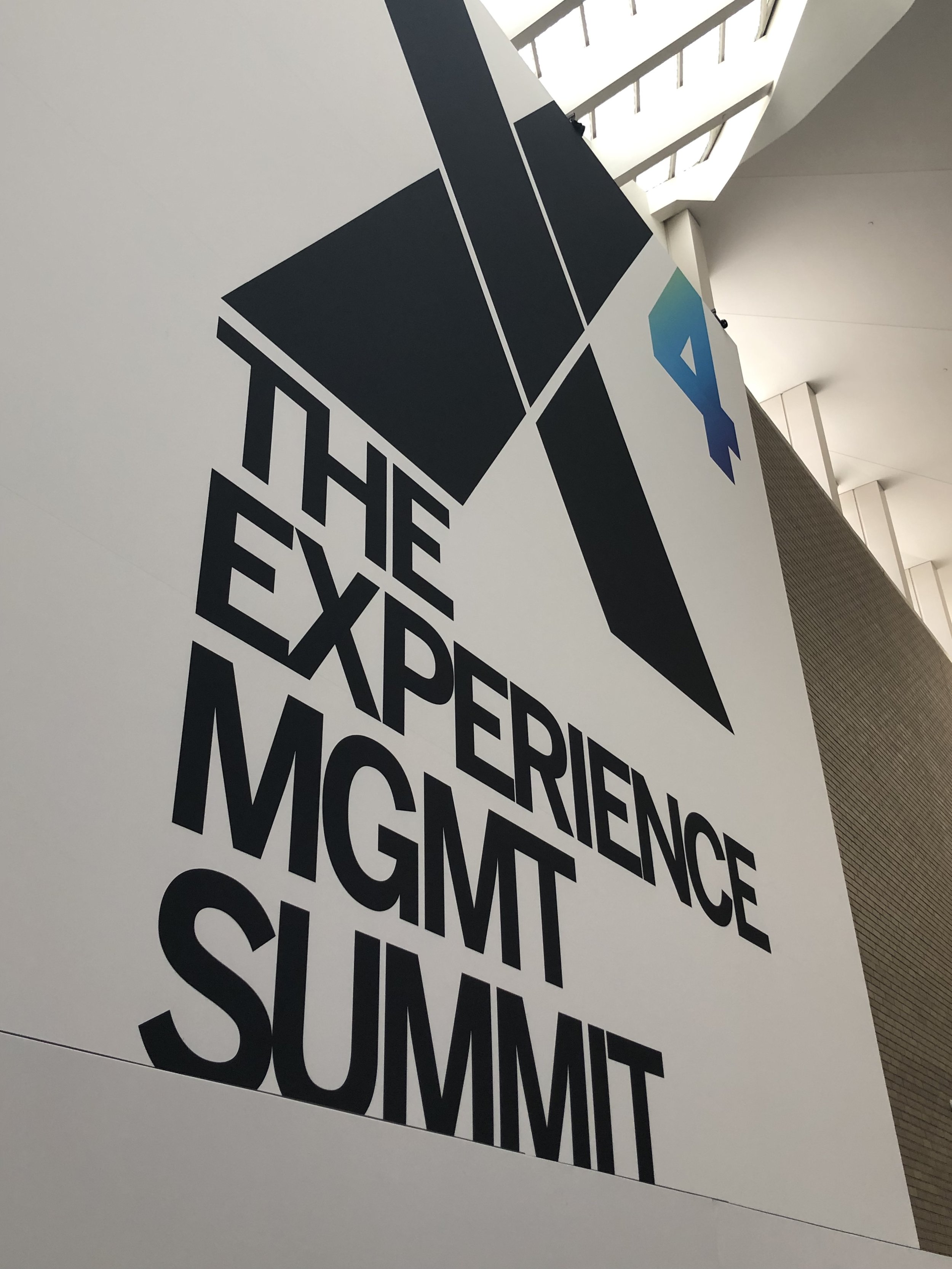This spring, I had the opportunity to attend the Qualtrics X4 Experience Management Summit in Salt Lake City, Utah. Qualtrics is an enterprise research tool designed to capture customer, product, brand, and employee experience insights.
Breakthroughs was the theme. The impressive keynote speaker line-up included former President Barack Obama, Oprah Winfrey (pictured left), Ashton Kutcher, Tony Hawk, NBA Commissioner Adam Silver, as well as Dan Reynolds, the Lead Singer of Imagine Dragons, who performed one night. This blog series will share a few of the highlights.
Google: Artificial Intelligence (AI) can provide a magical experience when it helps humans be humans.
Google is always one of the first to try something new, so it should come as no surprise that they were an early adopter of AI and even have a set of governing AI principles. Despite the media's outlook of a bleak future where jobs are replaced by machines, Google instead believes “AI is evolving to complement industries and empower human accomplishment.”
Through research, Google was able to determine the types of work people would most appreciate being replaced or enhanced by AI. For AI to be effective and valued, it must…
Alleviate tedium or peripheral work. For example, Google calendar suggest time slots that are available for everyone, with open meeting rooms near participants.
Enhance core work. For example, Sheets Explore (pictured right) lets users ask questions about the data in their spreadsheet. Based on their data, they’ll get suggestions for formatting, charts, and analysis.
Respect social dynamics. If AI is disruptive, people will disable it. Users can also feel uncomfortable when the AI only helps some people instead of the whole group, such as with voice commands.
Steer past old patterns by seeking bias and course correcting. Google calls Gmail Smart Compose their most successful AI product to date. But early iterations were plagued with gender bias, false information, and opinions. For example, the technology assumed investors to be “him” and nurses “her.” AI can reflect biases in the data it learns from, and Google needed to find the trouble spots and override them.
The key is that, ultimately, AI can provide a magical experience when it helps humans be humans. So perhaps, instead of replacing humans, robots will simply empower them.
Expedia: Listen, adjust, measure, repeat.
Expedia is known for well-priced vacation packages, but the team saw a trend; new customers often bought travel and lodging separately, despite the package deals. Research revealed that while travelers wanted to quickly lock in their flights, they wanted to be more thoughtful about their lodging.
In response, Expedia introduced an “attach savings” feature where deals on lodging and transportation are unlocked after purchasing travel.
The feature launched to a lukewarm response. Expedia tried interstitial pop-ups and slide-ins to raise awareness but found that customers were annoyed by the tactics that disrupted their primary tasks.
The team ultimately realized they needed to change expectations before users were ready to book. They developed a TV ad campaign demonstrating this new feature, which helped double the attach transaction growth from Jan 2018 to Jan 2019.
Spotify: Putting the ad in adoption.
When Spotify added the ability to skip ads, they expected most users to take advantage of it. They were surprised when only a fraction of users took it on, and they wanted to find out why.
Through a diary study paired with data tracking, they discovered that participants had different levels of awareness and understanding of the feature.
Some users thought it was too good to be true and that there had to be a catch. Some weren’t bothered by the ads. One user assumed that he couldn’t skip more than six ads because he couldn’t skip more than six songs (even though that's not true); his mental model influenced his behavior. Another user simply forgot it was offered.
Spotify developed a broad ad campaign to spread awareness in multiple ways. As a result, feature adoption doubled.
There were, in fact, so many interesting takeaways from the summit that I couldn’t fit them all into one post. Look for part two of my Qualtrics blog next week.




